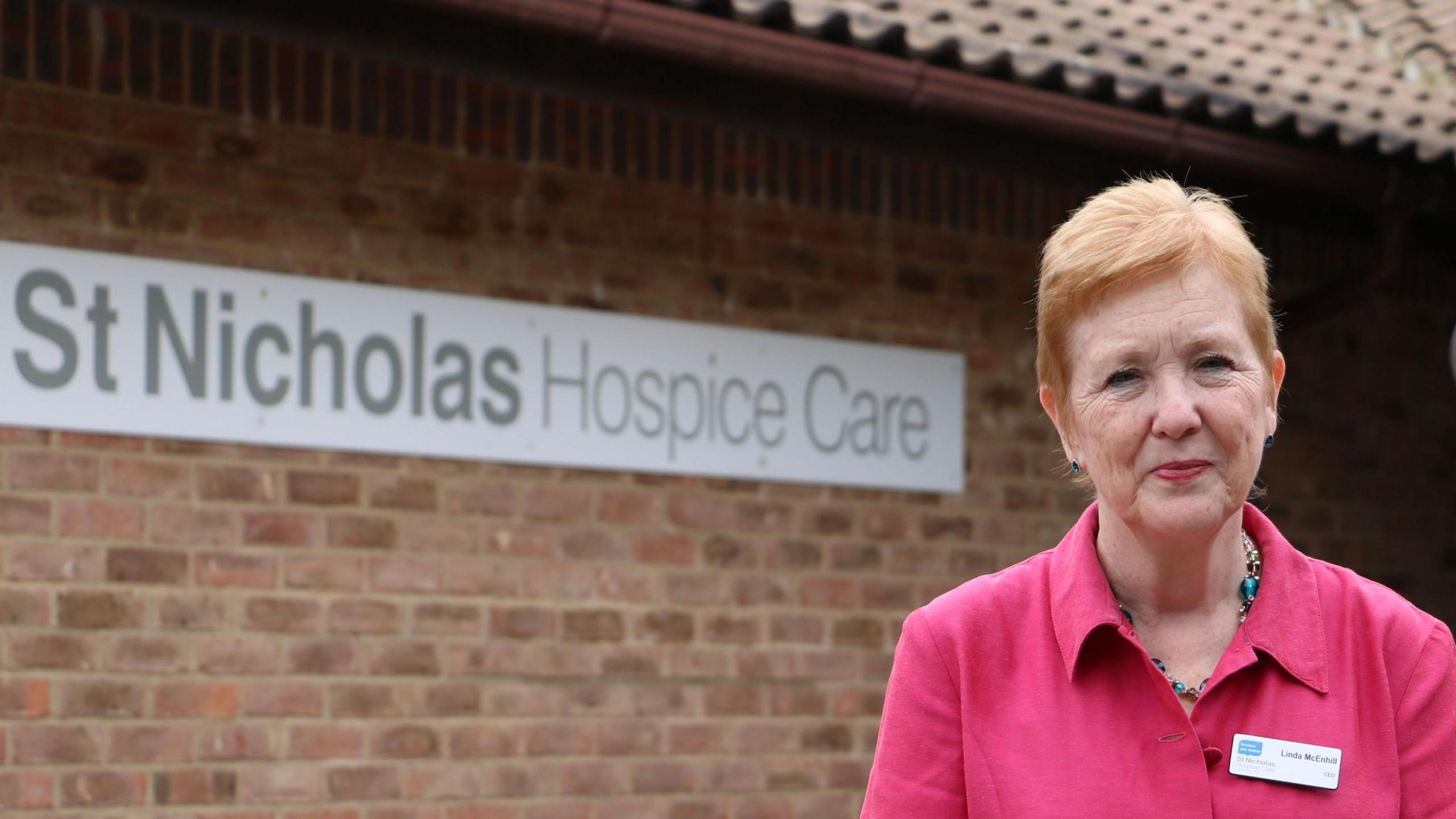'There's much more to a hospice than end-of-life'
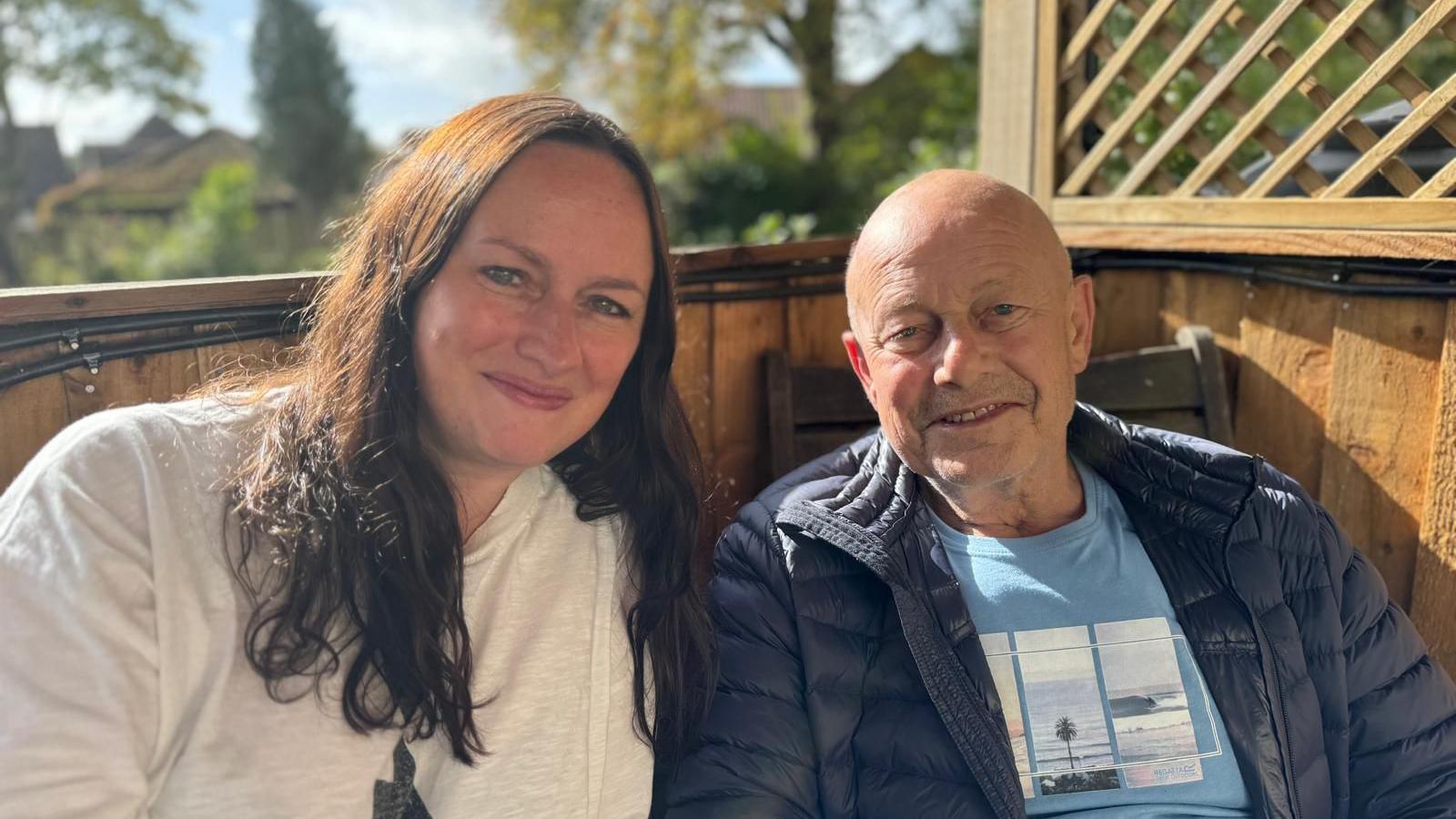
Christopher Wade, pictured with his daughter Claire, was full of praise for the team looking after him at St Helena Hospice
- Published
"I think everyone thinks of a hospice as somewhere you're going to go and die," Christopher Wade admits, five days after setting foot in one for the first time.
But for the team at St Helena Hospice, external, in Colchester, Essex, end-of-life care is just one part of the puzzle.
Mr Wade, 72, is one of the 4,500 people using the charity's services every year – of which less than 10% become inpatients.
"Everyone I meet here is so lovely and calming," he says. "Your wellbeing comes up 100% straight away and they can't do enough for you."
He is speaking to BBC News while soaking up the last signs of summer in the hospice's garden – something he would not normally do at home.
"All my life, I've never had the chance to sit down and enjoy things… when I go home, I'm going to do the same before the weather changes."
'We'll take dad home'
Mr Wade, from Great Bentley, was diagnosed with cancer in January, and was offered one of the hospice's 18 beds to help manage the pain caused by his treatment.
"I know I'm going to die in the end, but if I can get any more out of life, I want it."
"I felt the same as Dad, really," his daughter Claire Wade says. "As soon as you hear the word 'hospice', you just panic and think 'that's it, it's finished'."
"Within the first hour of being here, I thought 'he's not ready to go yet', this is where he's come to rest and get his pain under control, and we'll take him home again."
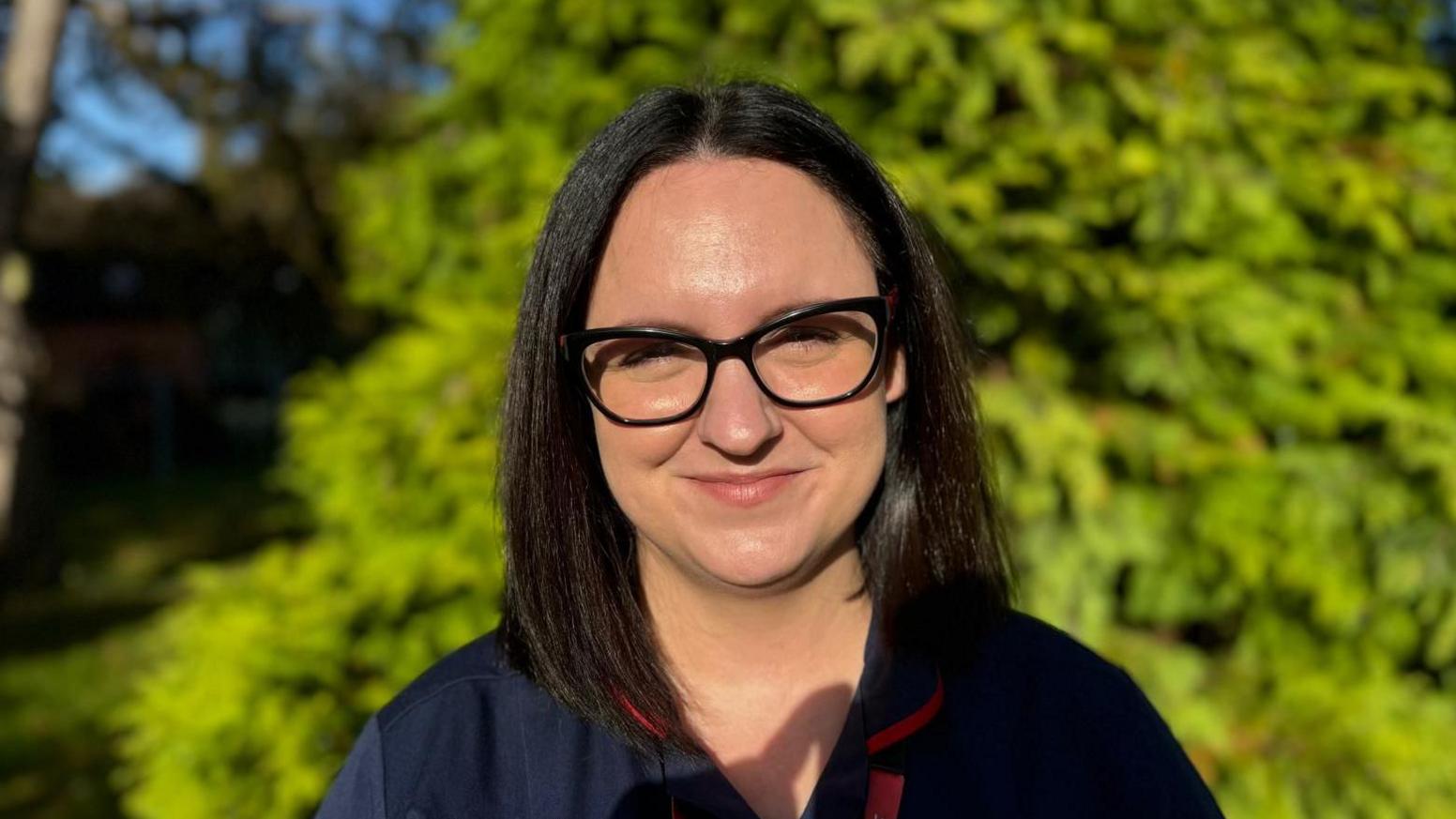
Niamh Eve has worked at St Helena Hospice since 2013
Hospice matron Niamh Eve always knew she wanted to work in palliative care and joined the team in 2013.
"We really focus on people being able to live their lives… we know they've got life limiting conditions but they're still people, they still matter," she says.
"It's a privilege, it really is, to look after people and have them put their trust in you."
'Quality of life'
Clinical nurse specialist Di Turner only planned to work at the hospice for a year or two, but has spent 34 of her almost 40 years in the profession at St Helena.
She is one of 12 nurses who provide care in people's homes – which makes up 90% of the organisation's care.
"It's not about making people better, it's about trying to improve their quality of life so that little things they want to do, such as going out for a meal, going on a special trip, seeing their grandchildren, becomes hopefully more possible," she explains.
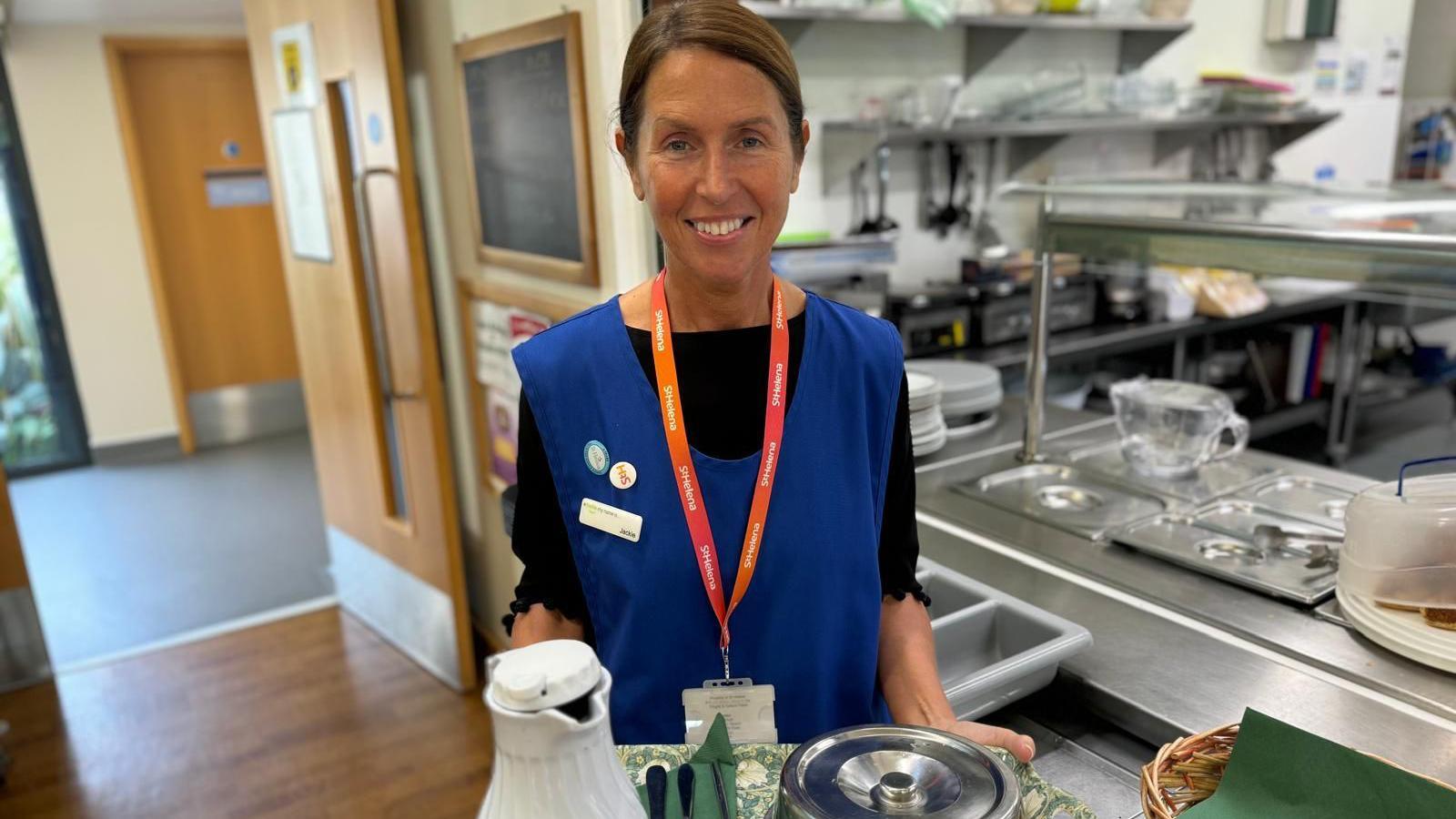
Jackie Arnold volunteers in the kitchen at the hospice once a week
The team is supported by about 900 volunteers who give up their time to support the charity.
Among them is Jackie Arnold, who works with the kitchen team around running a flooring company with her husband.
She felt inspired to do more to help St Helena after running the London Marathon for the hospice in 2019, despite never being involved with the charity before.
"After I ran the marathon, I found I had all this available time because I stopped training, so I started to come in and help on the ward," she says.
According to chief executive Mark Jarman-Howe, the charity needs to raise about £22m a year – equivalent to more than £60,000 a day – to stay afloat.
Monday marked the start of Hospice Care Week, external, which this year is promoting the impact charity shops have on hospice funding.
St Helena has 24 shops in north Essex. Mr Jarman-Howe says the revenue they generate is more important now than ever before because of rising costs.
"The last few years have been our busiest ever, but also our most expensive ever."
The charity also provides other services, like counselling and a 24-hour phone line.
Get in touch
Do you have a story suggestion for Essex?
Follow Essex news on BBC Sounds, Facebook, external, Instagram, external and X, external.
Related topics
- Published30 March 2024
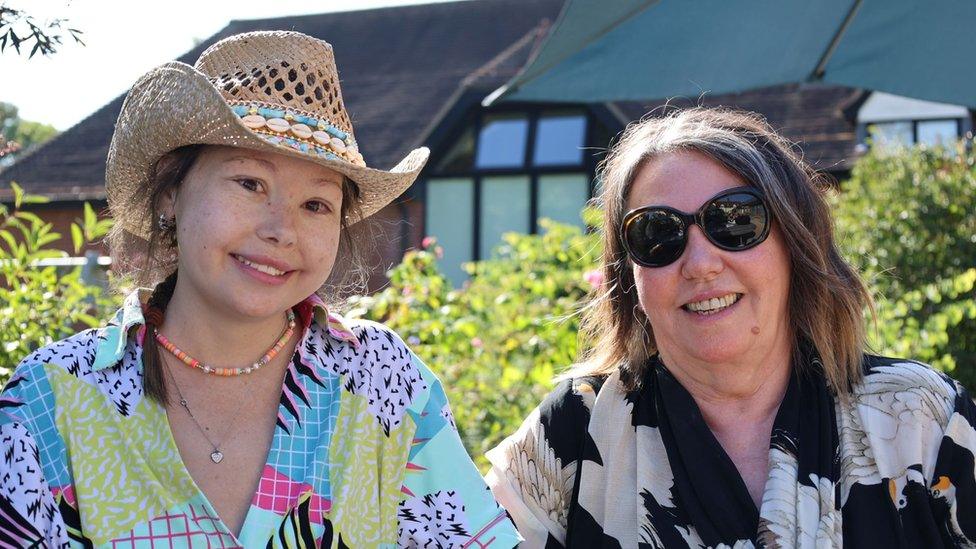
- Published20 August 2024
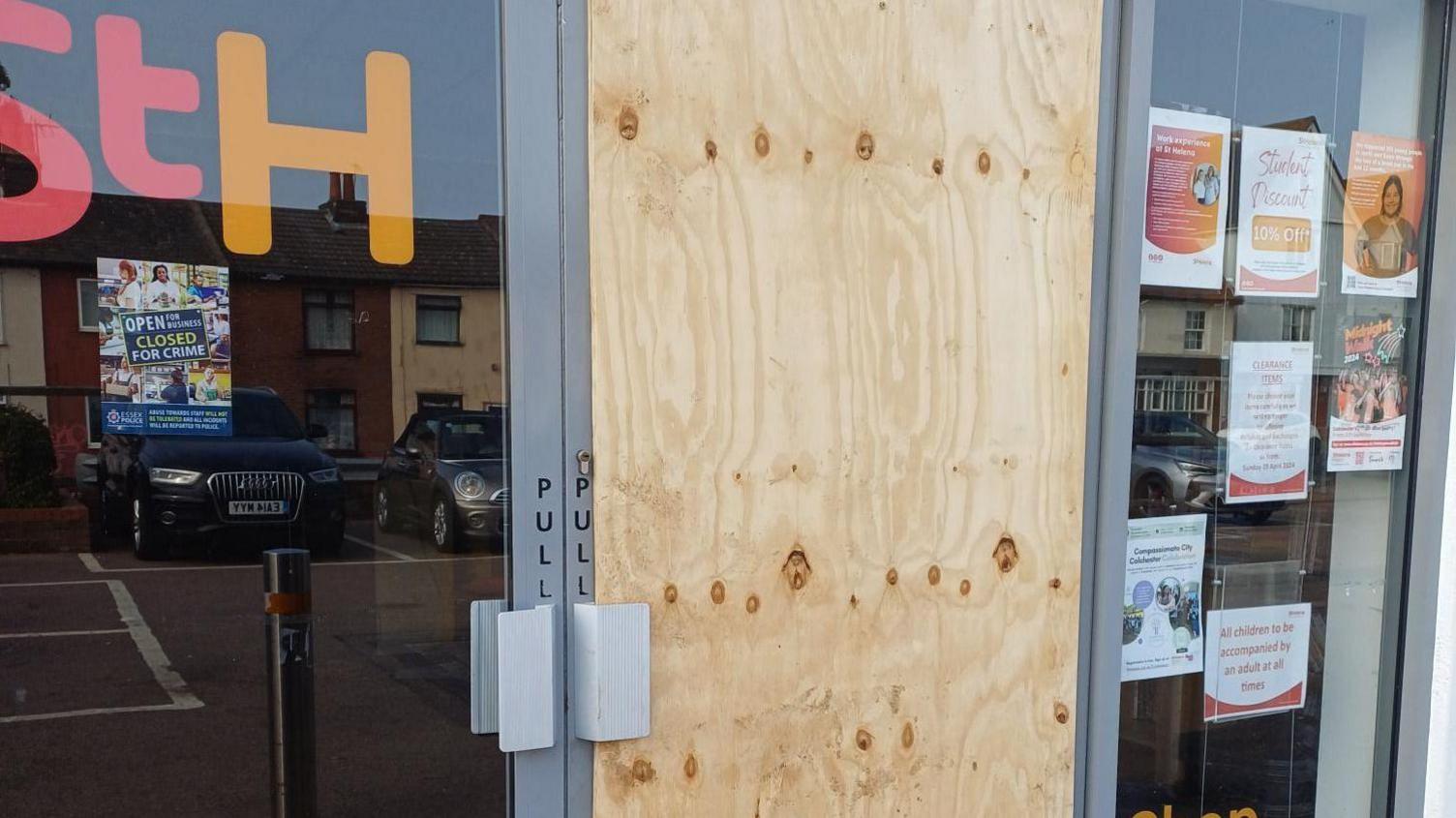
- Published7 October 2024
